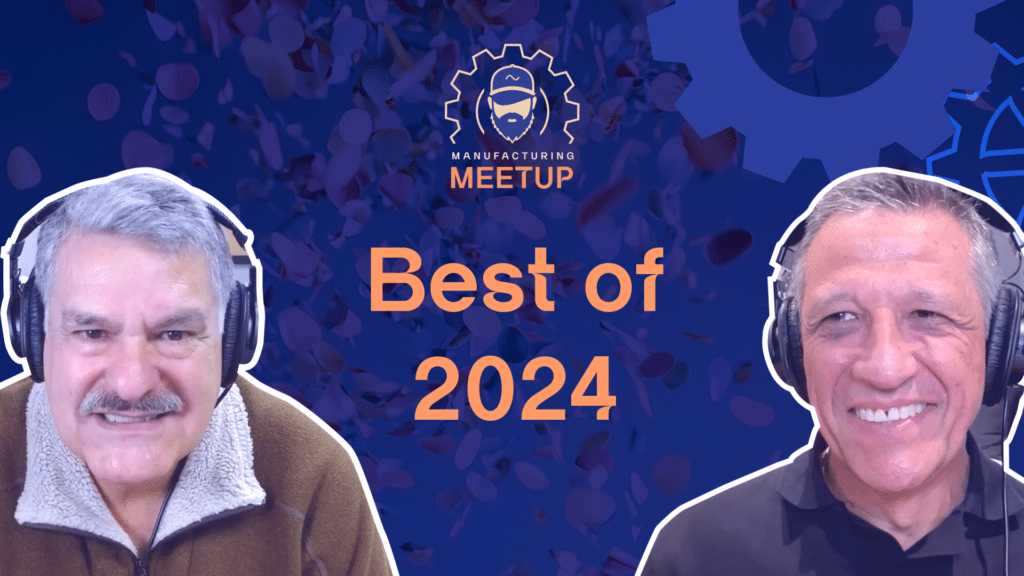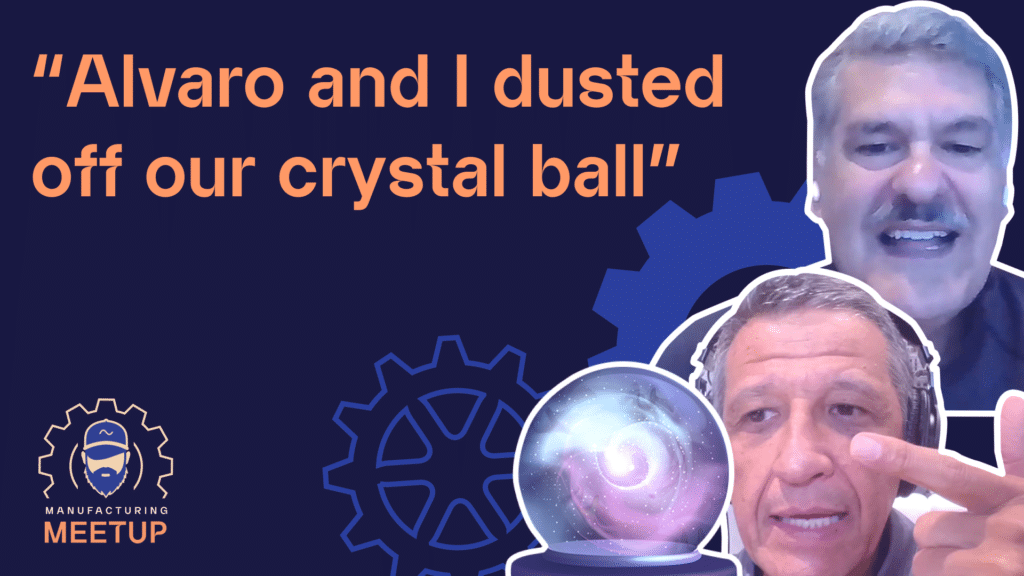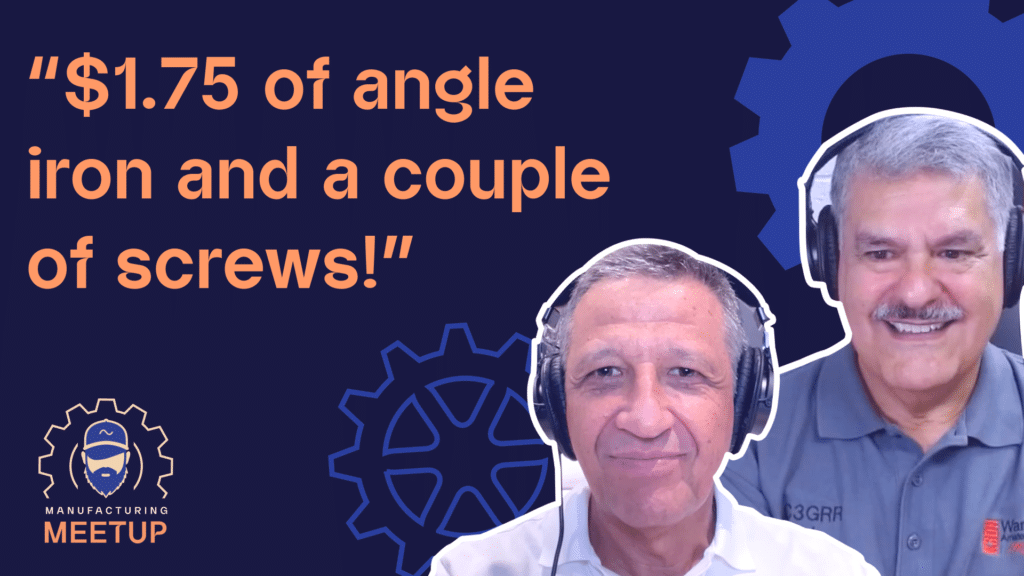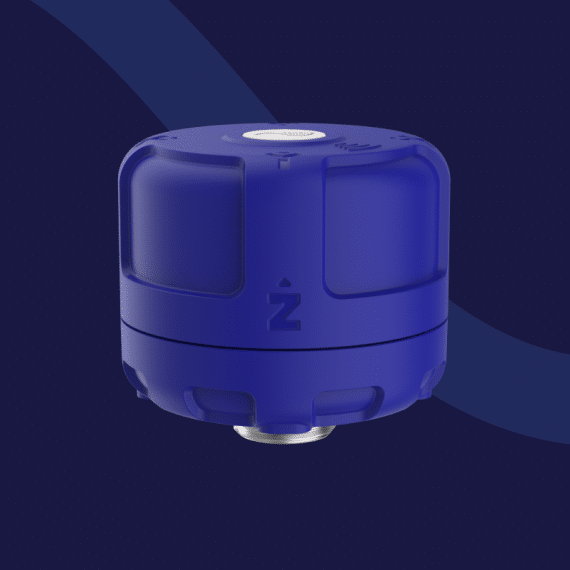AMA: Core skills, 4.0 tech for M&R, and precision maintenance
Ed and Alvaro tackle 3 questions in this Ask Me Anything:
1. How has the average plant floor worker or operator’s core skill set (and/or toolbox) changed over the past 10 years?
2. What Industry 4.0 technologies do you consider table stakes for current M&R professionals?
3. What is precision maintenance, and what are its benefits?
To keep the conversation going:
Email us: mmu@augury.com
Find us on The Endpoint: endpoint.augury.com
Full Transcript
Ed Ballina (00:00)
Hello, manufacturing peeps. I am Ed Ballina.
Alvaro Cuba (00:03)
Hello guys, I’m Alvaro Cuba. Welcome to everyone.
Ed Ballina (00:08)
Welcome, welcome. We’re excited to hear about your questions. So first, a quick little banter about the week, Alvaro Cuba. I was kind of planning on being ready for this. Unfortunately, I forgot my shirt at home. And today was a little chilly here, so I wore my camouflage top that I really like. But I wanted you guys to see me well. And with the camouflage top, I might have become part of the background. So instead, I wore a very patriotic shirt, I will probably repeat this for the 4th of July. But I have to tell you Alvaro Cuba, I know this shirt was made very well. You know how? Because back here it says made in Peru. And I figured if it comes from Peru, it’s got to be good, right?
Alvaro Cuba (00:44)
Yes, of course. Great cotton, great people doing it. Yeah.
Ed Ballina (00:57)
You are probably one of the plants that made this thing. Teaching them operational excellence.
Alvaro Cuba (01:03)
Actually I did, it was my second job in Peru. I was running one of these exporting goods factory, knitting and dyeing and cutting and sewing and shipping to the US. So yes.
Ed Ballina (01:19)
Wow. Alvaro, you have been involved in so many different operations. You know, I proudly, proudly say that I started my career in papermaking, mainly making toilet paper for a living. I’m very proud of that fact. And then I kind of went from one end of the body to the other and I went into the soda business. So a wide disparate, wide difference, but you definitely have had a lot of really interesting experiences. So that’s very cool.
Alvaro Cuba (01:29)
Hahaha. Seven different industries.
Okay, so let’s jump into the episode of today is Ask Me Anything. So we have here three questions that we heard from you guys, but we want to take the opportunity to encourage you to keep sending us feedback, questions, comments. We’ll publish your comments. Ed was proposing a competition about the best and the best joke as well. So, feel free to send us everything.
Ed Ballina (02:27)
Yeah, we hope we can connect with our sponsors and offer some meetup swag at some point in time that we can kind of like entice people with. But in case you thought you were on the wrong podcast, no way. Welcome to the Manufacturing Meet Up Podcast, the show where we kick back on our downtime, get real about efficiency on the shop floor, and talk about the latest fashion in men’s polo tops.
Alvaro Cuba (02:53)
Made in Peru.
Okay, so let’s dive in. Question one, it’s core skills, how they have changed in the last 10 years in the floor for floor workers. You wanna give it a try Ed?
Ed Ballina (03:11)
Sure, I mean, there’s been a lot of changes, a lot of change in the past 10 years and our plant workers have to adapt to those changes, right? One of the big, big pushes over the last decade or so has been an increased focus on safety and safety with a big S, not just, we typically think of safety as personnel safety and that is incredibly important, but also,
because we’re in the food business, food safety. Some of you may have heard about something called FSMA, which was the Food Modernization Act that the government launched on. And that has been a tremendous amount of work that has yielded some really great gains in terms of customer satisfaction, et cetera. Safety, a focus on keeping us with all the body parts we come in with, right?
I happened to be in a plant the other day. I know I mentioned the photograph on employees’ lockout tags. Well, in this place, they went one step beyond. And on their boards, as you walked around, they were, each employee was asked to show a picture or, you know, a sketch, whatever, of why they wanted to be, why they work safe. And you can imagine pictures, beautiful pictures of families and pets and activities and all this. Yes, yes, yes.
Alvaro Cuba (04:27)
I work, say, for the best campaign I ever seen. Yes.
Ed Ballina (04:32)
Ever. And you mentioned that last time. It was funny because I meant to tell you, I walked into this plant in Florida and there they were. Pictures of the whole family. What a statement, right? So that’s really cool. And the last thing that I’ll say on this one, maybe it’s not core skill set, but the world of mobile has exploded on our shop floors, right? Everybody has a mobile device. So your ability to interact with that mobile device is almost taken for granted now because it’s so ubiquitous. So how about you?
Alvaro Cuba (04:42)
That’s great. Yeah.
Ed Ballina (05:01)
What do you say to that, bro?
Alvaro Cuba (05:01)
On my side, one is the focus on quality. And I would say, as you with the big Q, because it’s not only the quality in the product, but I think operators and everyone in the plant have changed by start thinking what it matters to my consumer. No? What is the right quality that I want for the consumer.
And that makes quality a much bigger topic and quite different skill sets. No? Because then now you see operators getting information about what are the consumer needs. I seen operators going into the shelf and looking at the products in the shelf, comparing with the competitors and all that.
And the second that I will say, I think it’s obvious, is technology. Especially lately, robotics and AI have made every one of them to start needing to study, or people that have those skills start to be much more welcome in the manufacturing floor. Okay.
Ed Ballina (06:21)
A little thing like, you know, chat GPT, right? That you hear about so much. I was typing something on LinkedIn the other day and it gave me the option to use, you know, an AI. And you know what? It was actually pretty good. Now, my problem is it didn’t sound like me, right? I mean, I have my words, I have my little idioms and things that I say. And I was like, that looks really good, man. But don’t sound like Ed Ballina So, but I took some of the suggestions. You’re right. High tech is really making, you know, just a huge difference.
Alvaro Cuba (06:36)
Okay, second question, which is the flip side of this is in this case on 4.0 tech. So what has become table stake for M&R in the plants?
Ed Ballina (07:11)
So Alvaro, you want to take a crack at that one? I’ve got a couple of thoughts, but…
Alvaro Cuba (07:14)
Yeah, no, go ahead, go ahead.
Ed Ballina (07:18)
I, you know, we talked so much about AI, right? And what it means, but on the shop floor, you know, in generally what you want to do is you want to take the concept of condition monitoring, which has been around forever, but usually because condition monitoring used to be, I’m sorry, performed by human beings. My mouth, see, I don’t have a diet, diet Dew next to me. This is the moment for Chat GPT, but it would have done a better job.
Alvaro Cuba (07:37)
ChatGPT, this is the moment for ChatGPT, you see.
Ed Ballina (07:48)
But we’ve moved from people-based condition monitoring to equipment-based condition monitoring. So you need to have sensors that gather the right amount of information, right, that enable us then to use that data through AI to come up with some incredible insights. Not only is equipment failing but what’s the correlation between this type of raw material and this equipment and these settings that make a huge, huge difference?
But with all that comes changes in roles, right? And responsibilities that people have to get ready for, because their jobs will change. So that’s why I say change management is incredibly important as you undertake Industry 4.0. A lot of roles will change.
Alvaro Cuba (08:29)
Absolutely. What I have seen is huge simplification of equipment. No? With the robotics coming on board, the one motor, the one that, instead of rotating the rotor, rotates the outer part. Imagine you put that, you can eliminate the gearboxes, you can eliminate all the transmissions.
And that simplifies your process. No lubrication, it’s completely sealed, it’s foolproof. Yeah, all of a sudden you need to pay attention to much less and you can even have more space. So that’s one big change. And the other, which is connected with AI is that “just-in-time”. All this technology of just-in-time now, it’s starting to make sense because before just-in-time was just words. It was very difficult to put them in place. So now in maintenance, with all this automation on AI on instead of autonomous maintenance or preventive or predictive, you know it’s going to happen in a week. And so you can do it just-in-time to do the repair next Saturday from two to four, just in time, buy the spare parts for that. So those are some of the big changes that I have seen.
Ed Ballina (10:08)
And it’s amazing on the just-in-time, you know, there are some companies that have progressed to the point where the equipment tells them that they are starting to experience imminent failure. It’ll tell, identify what the part is, the most probable cause, and it will automatically order the part to be shipped in your facility. So it takes a lot of the guesswork out of it. So when you’re ready, right, you know, the parts coming in, you set the pit stop mentality with your tools ready.
And when that goes down, you pit crew it and you’re back up and running in no time. It’s the capability of today’s system is incredibly good. So.
Alvaro Cuba (10:42)
That’s exactly it. It’s incredibly good. Great. So let’s jump into the third question, which is about precision maintenance. And the first is probably, what is precision maintenance? No, because we have been throwing so many maintenance, autonomous and predictive and all that, and now precise, precision.
Ed Ballina (10:59)
So, yeah.
Now precise on top of everything else. So I will tell you, I had an opinion, right, that I was going to write down, but I went to the internet and I asked, what is precision maintenance? And in essence, it says, it refers to performing maintenance in a consistent, precise and standard and repeatable way. Okay. So that’s a definition of precision maintenance, but it essentially entails having processes and procedures, right, and checks in place to make sure that when you reassemble this equipment, or you provide maintenance, it is in the best possible shape. So, for example, you need to have a procedure right, that is clearly documented and spells out every step of the process. You should identify the tools that you’re going to use for this. When there are many and many of these pieces of equipment, they have torque settings for all the bolts, right?
Not too often do we see folks out there with a torque wrench or a torque limiter setting all the torque specs, but it is really important. One of the biggest causes, as you know, of vibration is loose mounting bolts, right? Well, there’s a good chance if you use a proper torque wrench and you torque those bolts to the right setting, you’re not going to have loose mounting bolts. But it goes beyond that. It’s having specifications, a procedure, the right tools. Yes, yes.
Alvaro Cuba (12:26)
The famous SOPs.
Ed Ballina (12:29)
You and I have probably written more than a handful of those over the years, right? But I’m still writing SOPs That is not fun. I was like, my God, really gotta write an SOP again? The only thing that was worse than that, Alvaro, I’m sure you’ve done this, a PM scrub, right? When I go into a plant, go “Hey Ed, we’d like to have you do a PM scrub.” We’re like, my goodness. Probably 16 hours of mind-draining time.
Alvaro Cuba (12:34)
I leave that to you. That was not the fun part.
Ed Ballina (12:57)
Looking at these PM practices that they took out of a book, some of them just say, check the motor. Okay, the motor is still there. I guess I did the PM, check and move on, right? Yes, I’ll stop about PMs because this is bad. But a lot of it, folks, is about making sure that we use simple tools that are available to us to make sure that our equipment is set up in its best possible fashion, okay?
Caliper gauges haven’t gone out of style. Dial indicators haven’t gone out of style. They provide you with amazing quality of information.
Alvaro Cuba (13:21)
I will add to that training, proper training. Everything that Ed just said requires the proper training. KPIs, you need to measure to know that you are doing it right or wrong. And if you set the right KPIs, you will notice right away and it will help you in your continuous improvement journey. No? And…
Ed Ballina (13:31)
Amen. Yep.
Alvaro Cuba (13:56)
That makes you predictive. Every time it will happen the same. Every time we’ll do it the same. And once you get that basic part done, is when the fun starts. No? Because then everything is working, then you have time, free time, then you can start thinking in new ways of doing things, investigating more.
Innovating and different things, but the basic is the basic and that’s what precision maintenance is.
Ed Ballina (14:31)
Absolutely. Hey, I had a leader at one time that if he walked into your plant and he found a pair of adjustable wrenches or channel locks, he would go insane. Well, there is a proper wrench for that particular nut or bolt, you guys are stripping them out with channel locks or the infamous silicone spray that used to reappear everywhere where there was a problem. What is that there? Well, we have a little bit of a problem, we hit it with silicone spray. No, let’s fix the problem.
Anyway, yeah, precision maintenance, folks, it’s almost free, right? Apply that technique.
Alvaro Cuba (15:01)
Big 5S boards, everything is in its place with color and all that, very clean around. No?
Ed Ballina (15:11)
Yes.
I’m particularly proud of our 5S here in the shop. So during a future call, I’ll throw up a picture of our shadow boards where all of our tools are shadowed. Our cleaning station is clearly laid out with the mop bucket and everything else. And I’m fastidious when it comes to that. I walk by and like the broom is on the floor, I go, yo, what’d I spend this money on this board for?
Alvaro Cuba (15:41)
Well, you see guys Ed is a good student and he will show you the homework that we left him. So for next one, he’ll show the pictures how he did his homework. Okay.
Ed Ballina (15:51)
For the next one. I will definitely do that.
So thank you for tuning in today. If you want to get us talking about some different topics,
Email us at mmu@augury.com or find us on The Endpoint. That’s a free online community for manufacturing folks and you can find that at endpoint.augury.com We’ll show those addresses in the show notes for you and we might be able to get something going here as to either the best joke or the best question and give out some amazing meeting meet up swag.
Alvaro Cuba (16:25)
Hahaha. And more important, connecting us and talking, having fun, learning from each other. So if you enjoyed this episode, please follow us, subscribe, like us, if you’re on YouTube or a listen to us in iTunes
Ed Ballina (16:52)
Thank you for your time. Take care, team.
Alvaro Cuba (16:54)
Bye, guys.
Meet Our Hosts

Alvaro Cuba
Alvaro Cuba has more than 35 years of experience in a variety of leadership roles in operations and supply chain as well as tenure in commercial and general management for the consumer products goods, textile, automotive, electronics and internet industries. His professional career has taken him to more than 70 countries, enabling him to bring a global business view to any conversation. Today, Alvaro is a strategic business consultant and advisor in operations and supply chain, helping advance start-ups in the AI and advanced manufacturing space.

Ed Ballina
Ed Ballina was formerly the VP of Manufacturing and Warehousing at PepsiCo, with 36 years of experience in manufacturing and reliability across three CPG Fortune 50 companies in the beverage and paper industries. He previously led a team focused on improving equipment RE/TE performance and reducing maintenance costs while improving field capability. Recently, Ed started his own supply chain consulting practice focusing on Supply Chain operational consulting and equipment rebuild services for the beverage industry.






